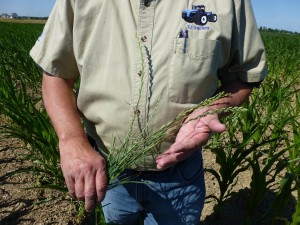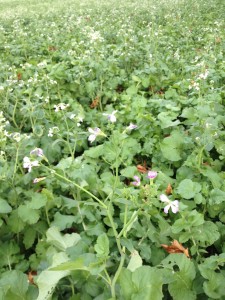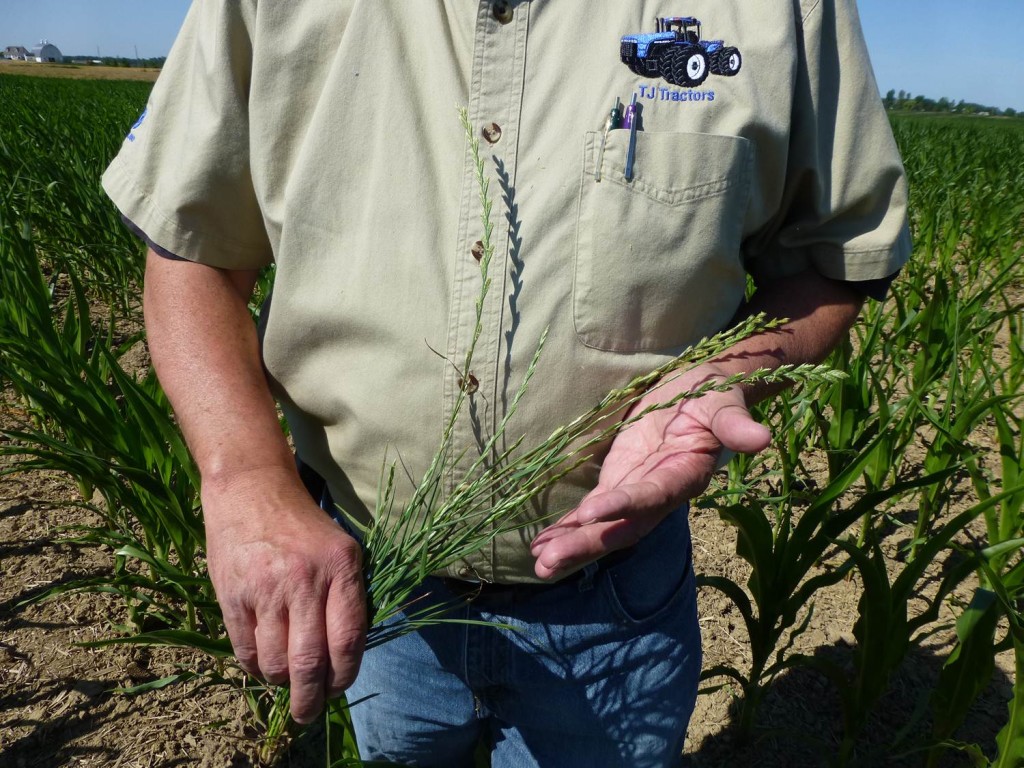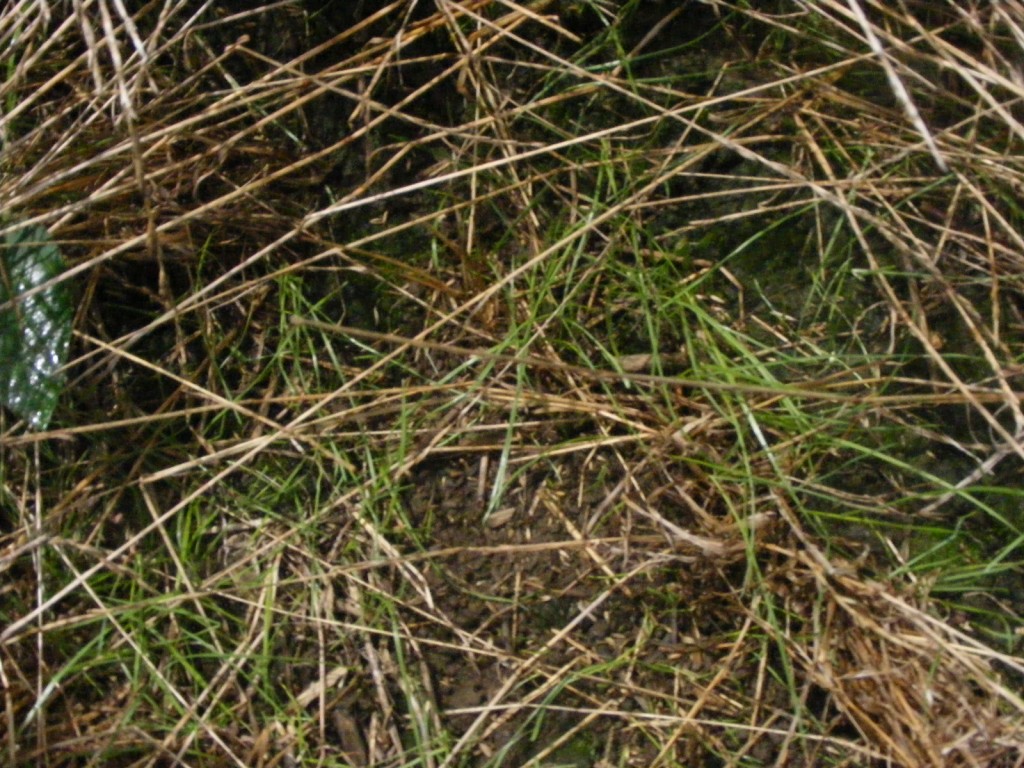In a previous post I wrote that cover crops can suppress weeds. And many farmers are planting them with that primary benefit in mind.
But, can cover crops become weeds?
Unfortunately, the answer is “yes, they can.” Obviously we never want this to happen on our farm. And with good management practices, we can lessen the possibility that it will.
Two species that require precise management are annual ryegrass and radishes. Both annual ryegrass and radishes benefit the soil tremendously and have been shown to increase profit per acre, but both must be carefully managed as well. Specifically, there must be a comprehensive plan for terminating annual ryegrass. If you are not absolutely clear on how you are going to do this, you should not plant it. Likewise, with cover crop radishes, you need to be absolutely clear on what you are buying and when the seed should be planted.

This is why Hans Kok, from the Indiana Conservation Cropping Systems Initiative often tells farmers that are trying cover crops for the first time to start with a few acres of oats and radishes as a cover crop. His thinking is that because both oats and radishes die over the winter that farmers will not have to worry about terminating the cover crop in the spring. And I agree with Hans on this.
However, cover crops are becoming more popular and many producers are convinced that they are excellent at killing weeds and cover crops. While Ag Chemical companies have shied away from making too many recommendations on killing cover crops, farmers are confident in their abilities to “figure it out” and make cover crops work on their farm. Why use “boring” oats and radish? Let’s use Annual Ryegrass!
Don’t get me wrong, Annual Ryegrass is a fabulous cover crop with tremendous value as a cover crop and forage. But, it does take more management than many other cover crops. Annual Ryegrass provides high reward with some additional risk. On our home farm we sprayed our soybeans three times to make sure all annual ryegrass was killed.

I’d love to hear your “formula” for annual ryegrass control. Have you noticed any difference with terminating annual ryegrass on different soil types? Different temperatures? Different additives? Different times of the day?

